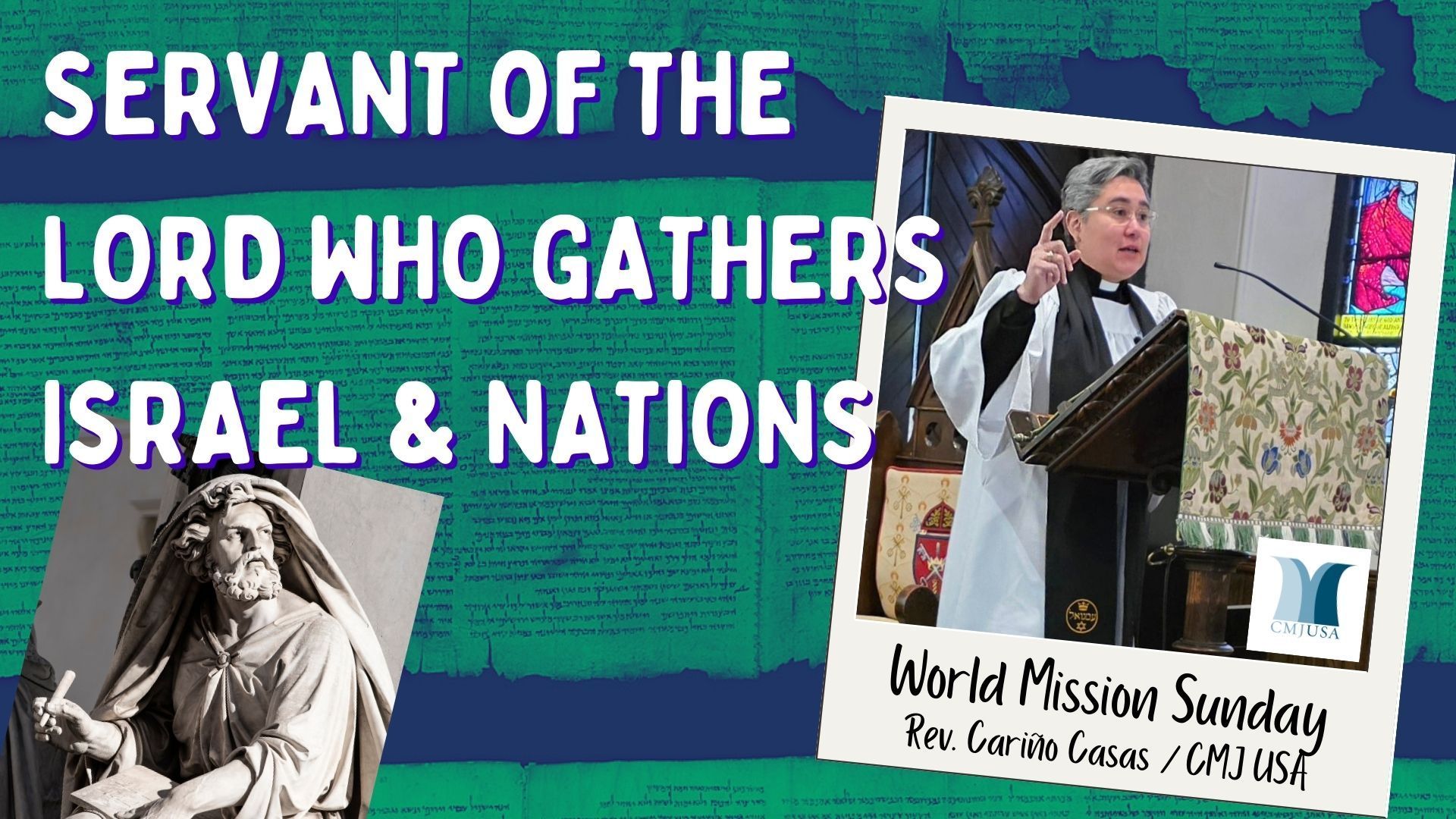Cry, a call to lament war, antisemitism, our sin
The Ninth of Av: A Day of Lamentation and Repentance
Editor's note: This sermon was preached on August 3, 2025, which coincided with the Ninth of Av on the Hebrew calendar. Tisha b'Av (in Hebrew) is a fast day mourning disunity, persecution, and the destruction of both temples. The text below is an edited version of the full transcript.
As most of you are aware, today is a fast day—a day of mourning. It’s the ninth day of the Hebrew month of Av, marked by lamentation, fasting, humility, and repentance. In the synagogue and at the Western Wall, the liturgical focus is on the Book of Lamentations.
Let’s pray.
Father in heaven, on this solemn day of remembrance and reflection, we commit ourselves to You. Teach us. May we learn from the Jewish people, from Your Word, and above all, may we be guided by Your Holy Spirit. May Jesus be glorified in our midst, and may His name be revered and honored—especially in this city. Amen.
It’s traditionally believed that both the First and Second Temples were destroyed on this same day—the ninth of Av—which typically falls in July or early August. The First Temple was destroyed because of idolatry, immorality, and bloodshed. Scripture is clear on that.
The Second Temple, however, fell because of “causeless hatred.” Deep divisions within the Jewish community weakened them from within. As Josephus recounts, in the lead-up to Rome’s siege in 70 CE, Jewish factions turned on each other inside Jerusalem. Civil war erupted. Food supplies were burned. Blood was shed. These internal fractures made the Romans’ conquest tragically easier.
So today is not only a day of remembrance—it is a day of repentance. Tradition teaches that the Temple remains unbuilt because repentance has not yet gone deep enough.
📖 The Poetics of Grief
The Book of Lamentations, written after the destruction of the First Temple in 586 BC, is composed of five poetic laments. These poems express grief, confusion, humiliation, and a piercing question: Why? The poet knows why judgment came—because of sin—but still dares to ask God for mercy.
Some scholars call Lamentations ancient survivor literature. It channels the emotional weight of those who lived through the Babylonian conquest, much like Holocaust narratives today.
Lamenting runs deep throughout Scripture:
- Over 40% of the Psalms are laments.
- Jeremiah and Job echo this theme.
People pour their hearts out before God—sometimes with anger, doubt, disappointment. Why is this happening? Where are You, Lord? Don’t forget me.
And Scripture responds: God is not distant. He is not a cold, cosmic force unmoved by our suffering. He is a Person, deeply engaged with the emotional lives of His people. Yet many of us have built an image of God that is passionless and detached.
💬 Lament as an Invitation to Relationship
The depth of lament throughout Scripture is God’s invitation: “Come to Me. Speak your pain. Ask your questions.” He does not grow tired of our cries. Instead, He welcomes them—again and again.
Child psychology helps us understand this dynamic. There are two kinds of attachment: anxious and secure. Anxious attachment fears rejection, avoids vulnerability. But secure attachment trusts. It knows it can bring burdens, doubts, complaints—and still be received with love. God invites secure relationship.
Unlike human community, where constant venting may overwhelm others, God is never overloaded. His response is one of intimacy. Lament is not a nuisance—it’s a sign of closeness.
And it’s not only for ourselves. We must lament on behalf of others. For example:
- Do we lament the state of the Church?
- Or do we judge, preach against, and grow self-righteous?
When scandals break, are we broken? Or just critical?
Perhaps our posture should be one of sorrow—not detachment. It’s easy to say, “I’m spiritual but not religious; I don’t belong to a church, so this doesn’t concern me.”
But when the Church fails, the name of Jesus is dragged into the mud. We fail to sanctify His name.
Lamenting calls us to examine ourselves. Perhaps, as John read from Lamentations, it’s not just about others. Maybe we need repentance too.
We must lament for persecuted Christians:
- In Nigeria, where families are torn apart by extremists.
- In Kenya, facing religious violence.
- In China, enduring surveillance and oppression.
And closer to home: after 600+ days of war, I hear voices. Some demonize Israel. Others defend. But I rarely hear lament.
Where is the brokenness? Where is the cry that asks, “Why is this happening?” Where is our empathy?
Maybe it’s fatigue. Maybe social media overload. Maybe we’ve grown numb. But lament helps us feel again.
When Prophecy Becomes a License for Apathy
Sometimes prophecy is our excuse. We think, “It’s inevitable. Why bother caring?”
Years ago at a prayer conference in England, a Christian journalist read Psalm 74 or 76, predicting invasion and suffering for Israel. He said, “This will happen soon.”
Soon after, the Second Intifada broke out. Suicide bombings scarred the nation. Some of us lost loved ones.
And yet, after the journalist’s compelling talk, people said, “Praise the Lord, prophecy is being fulfilled,” and then went to have tea. Talk turned to British weather.
That reaction haunts me. If we believe prophecy, shouldn’t we be on our knees in prayer? Where’s the urgency? The empathy?
Another reason people disengage? “They deserve it.” But even if there’s truth in that—those who suffer are still God’s creation. Still worthy of lament.
There’s a well-known Jewish story told during Passover—a kind of theological commentary. When Pharaoh’s army drowned pursuing Israel through the sea, the angels rejoiced. But God said, “Be silent. I had to do this. But they too are my creation.”
It’s not about facts—it’s about truth. Even our enemies are made in God’s image.
In recent months, maybe we’ve grown numb. That’s understandable. But where is our lament?
- Why is this happening to Israel?
- Why is this happening to Palestinians?
- Is it necessary?
Lament doesn't ignore sin. The poet of Lamentations confesses wrongdoing—but still asks for mercy. We can do the same.
We should lament for ourselves, yes. But we must also lament for others. Pour out grief, heartbreak, and questions. And if we feel nothing, then let this be our prayer:
“Lord, break my heart for what breaks Yours.”
✝️ The Man of Sorrows Is With Us
What’s the answer to all of this?
Jesus.
Isaiah 53 says He is a man of sorrows, acquainted with grief. We usually apply that to the cross. But Jesus lived among us. He suffered disappointment. He likely battled depression. Certainly, He wrestled with fear and doubt.
He took on flesh—and with it, our pain.
Scripture says He is with us.
In the chaos.
In the suffering.
In disaster.
He does not abandon His people.
Isaiah 63 reminds us of God’s mercy:
“I will tell of the kindness of the Lord... According to His compassion and many kindnesses, He became their Savior.”
And then it says:
“In all their distress, He too was distressed.”
Psalm 91 affirms it:
“In all their trouble, I will be with you.”
God is with us. He enters our pain.
So yes, lament. Yes, grieve. Yes, wrestle with doubt.
But do not forget: The Lord is present. He hears. He stays.
Amen.
Blessed by this post? Ready to sow into the work of CMJ? No gift is too small. we are blessed by your partnership.



